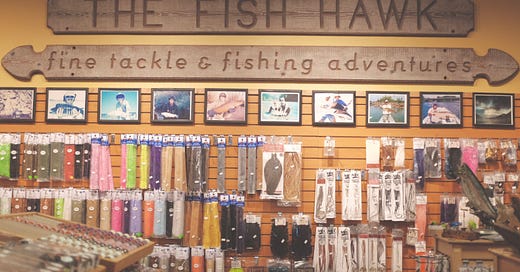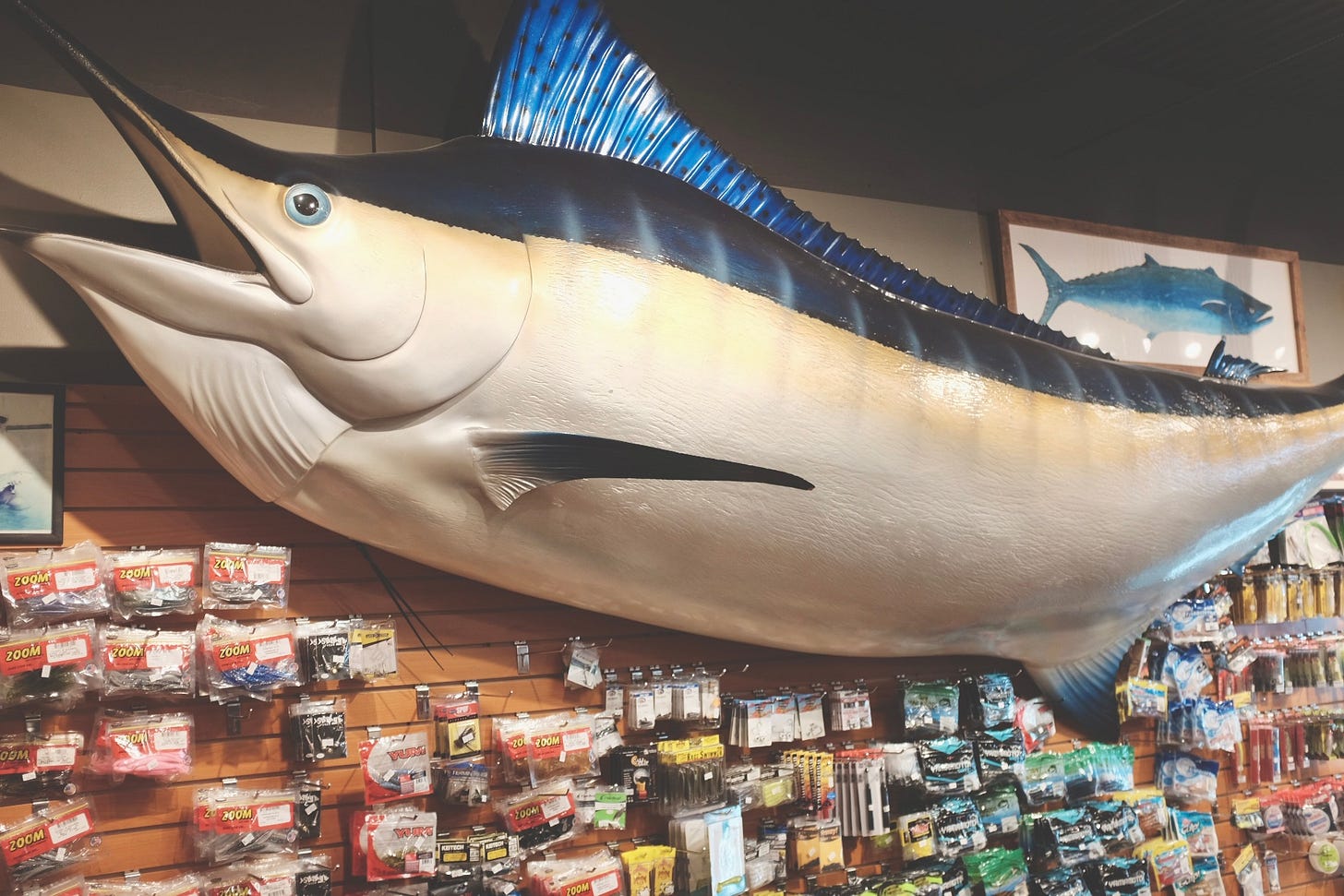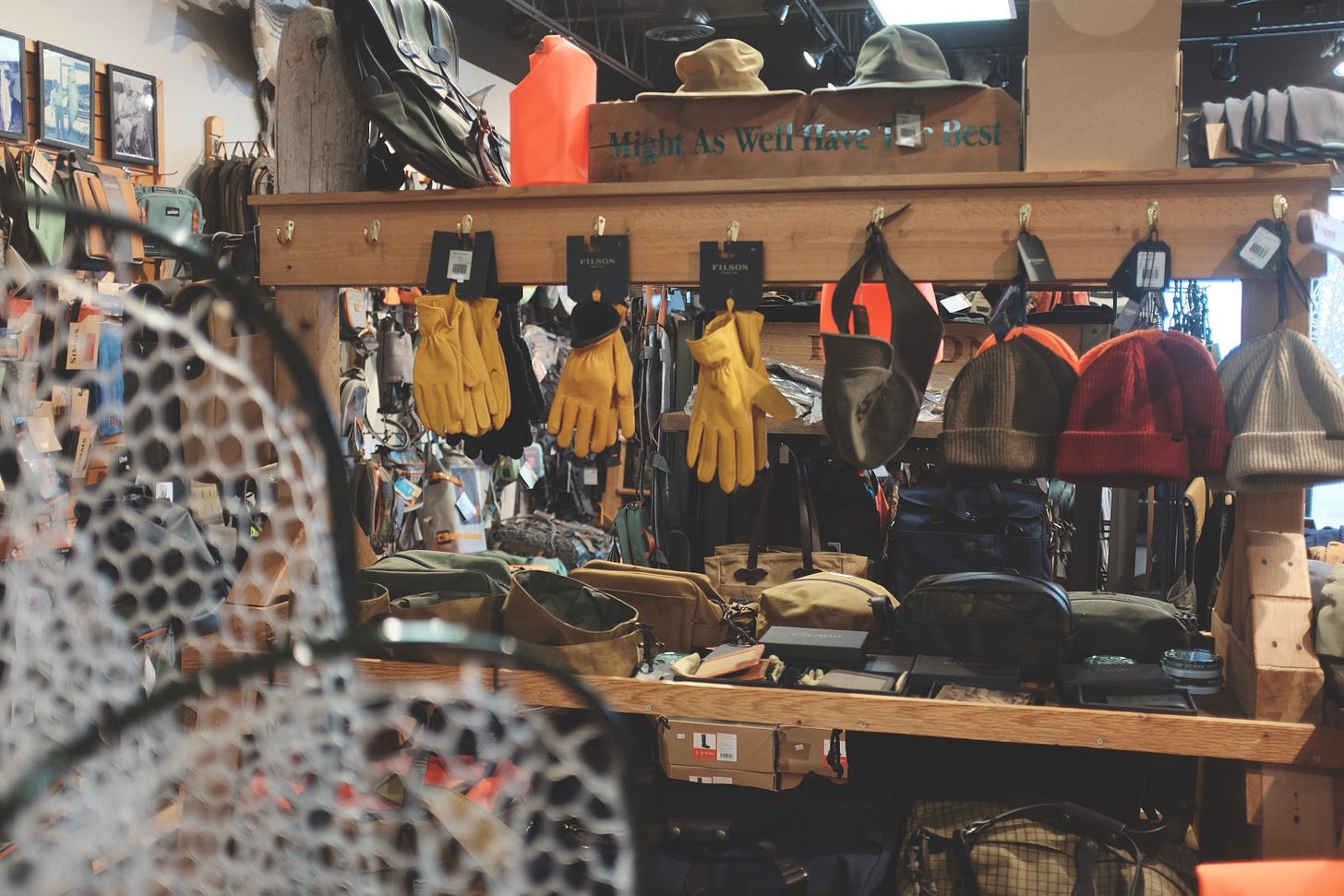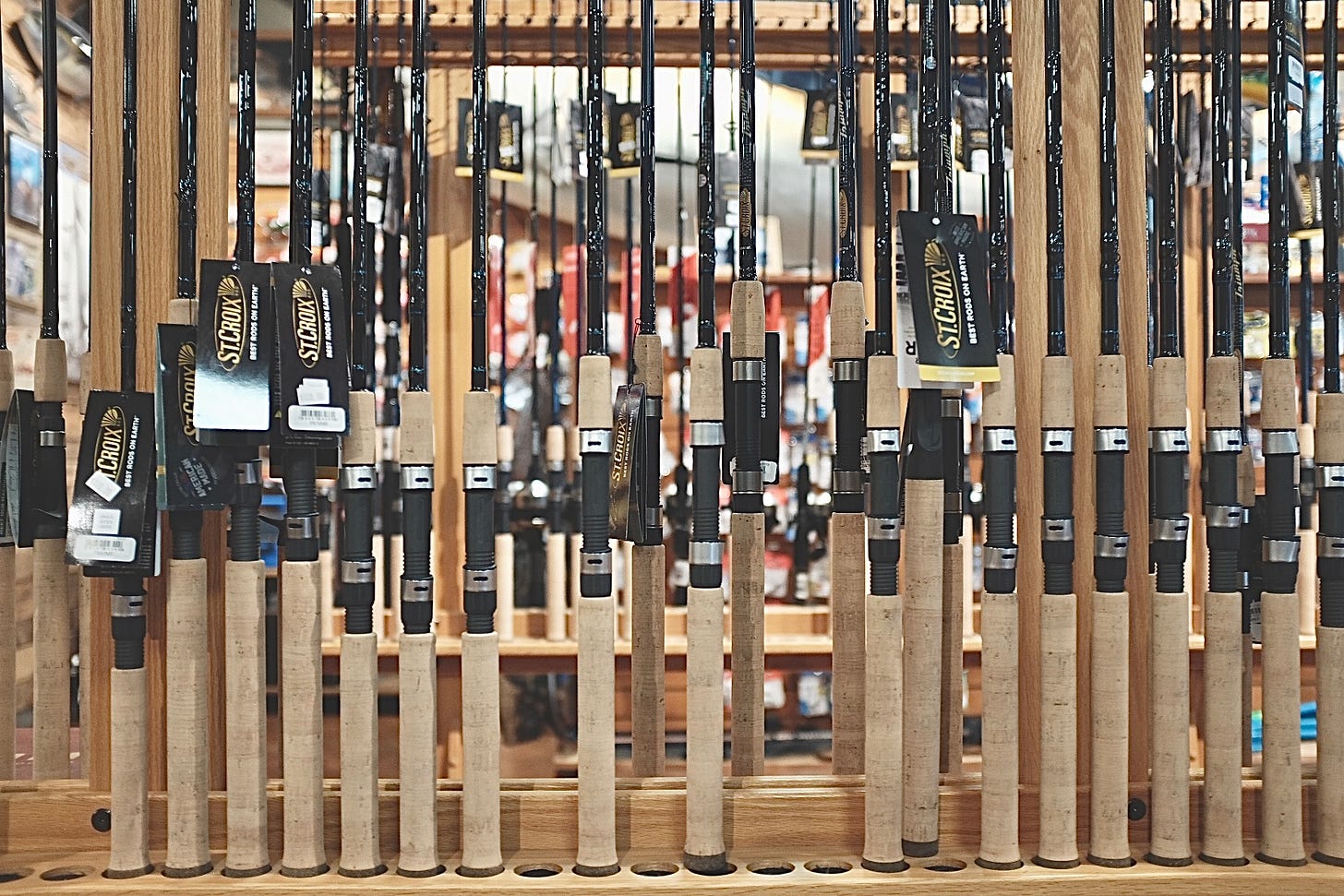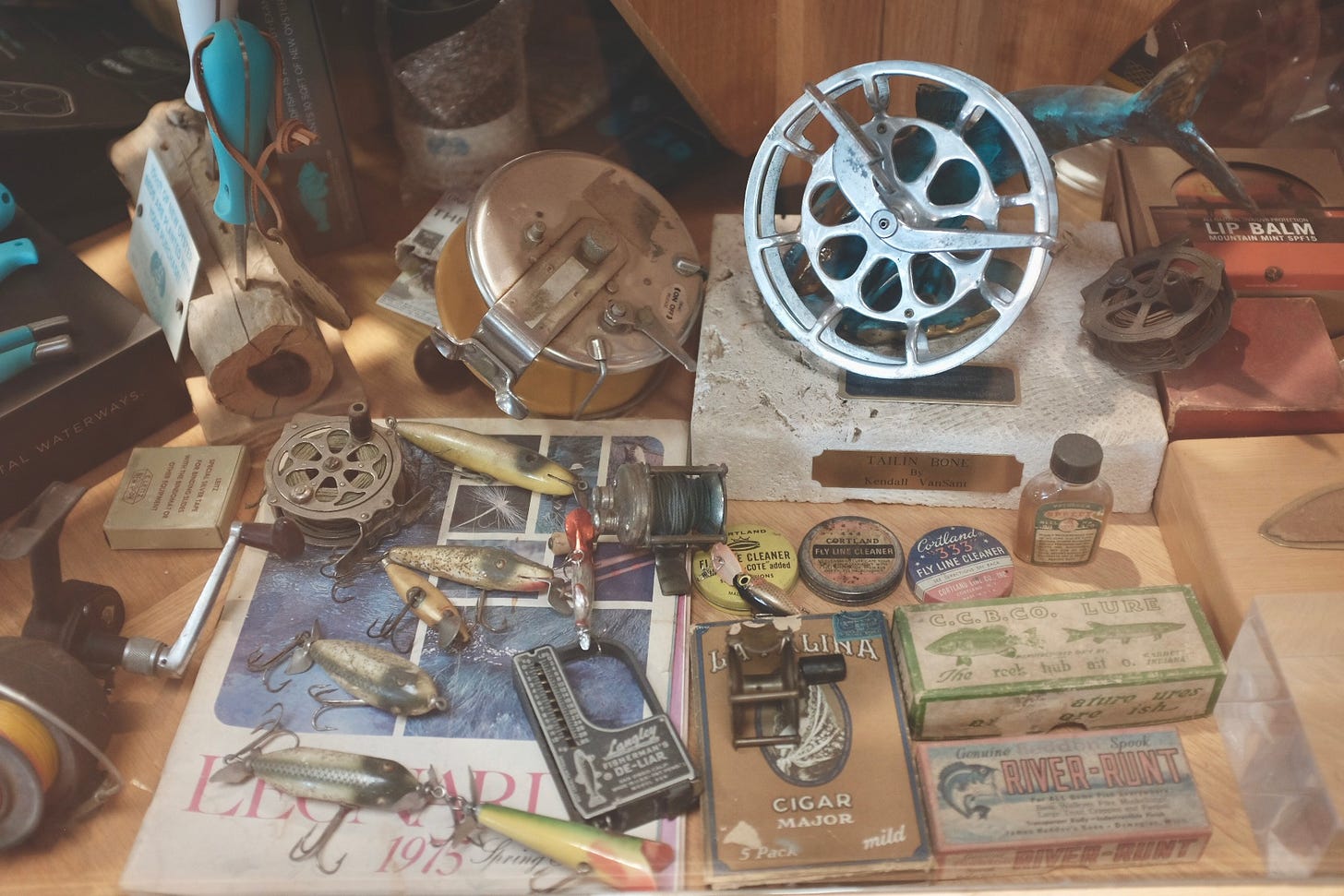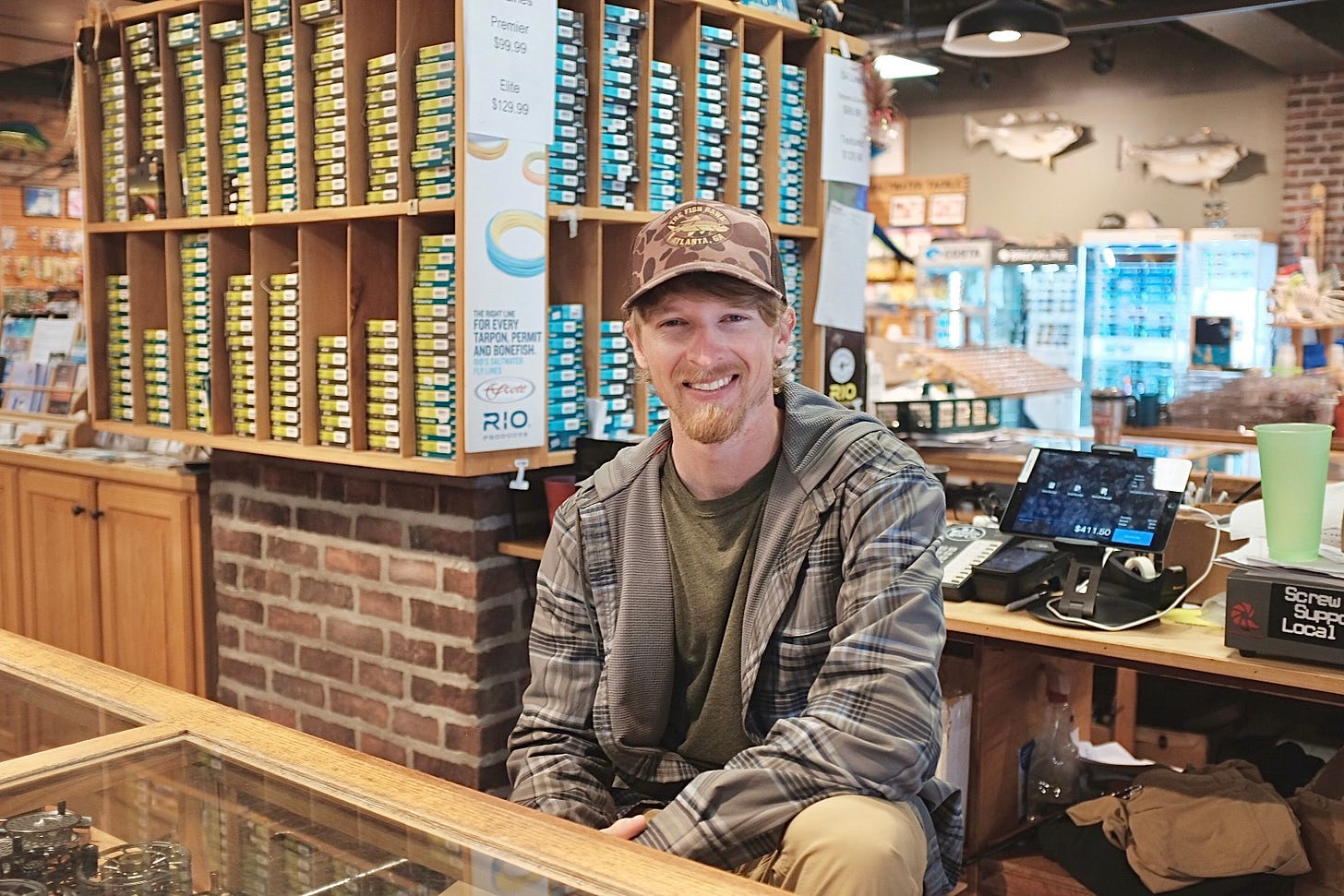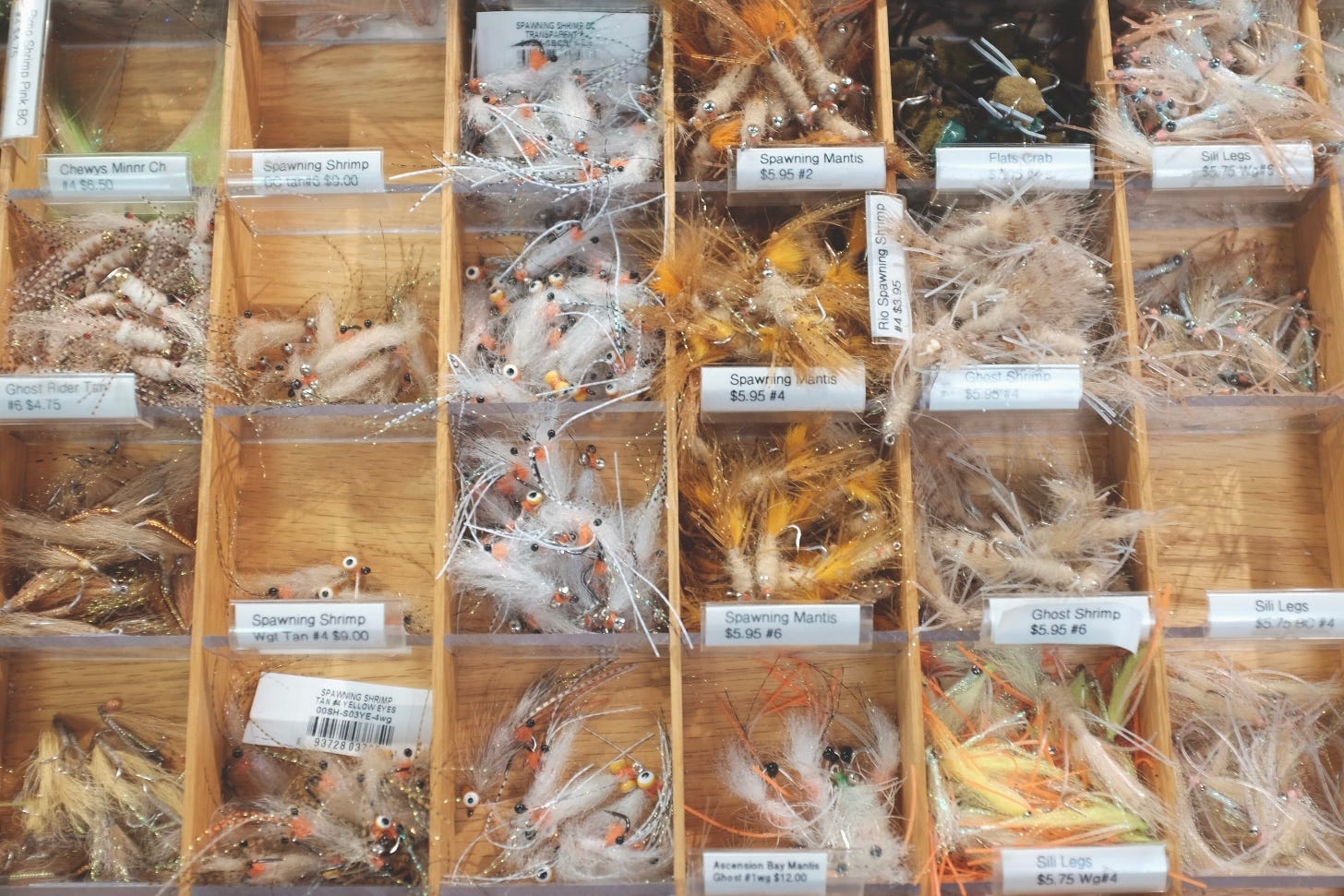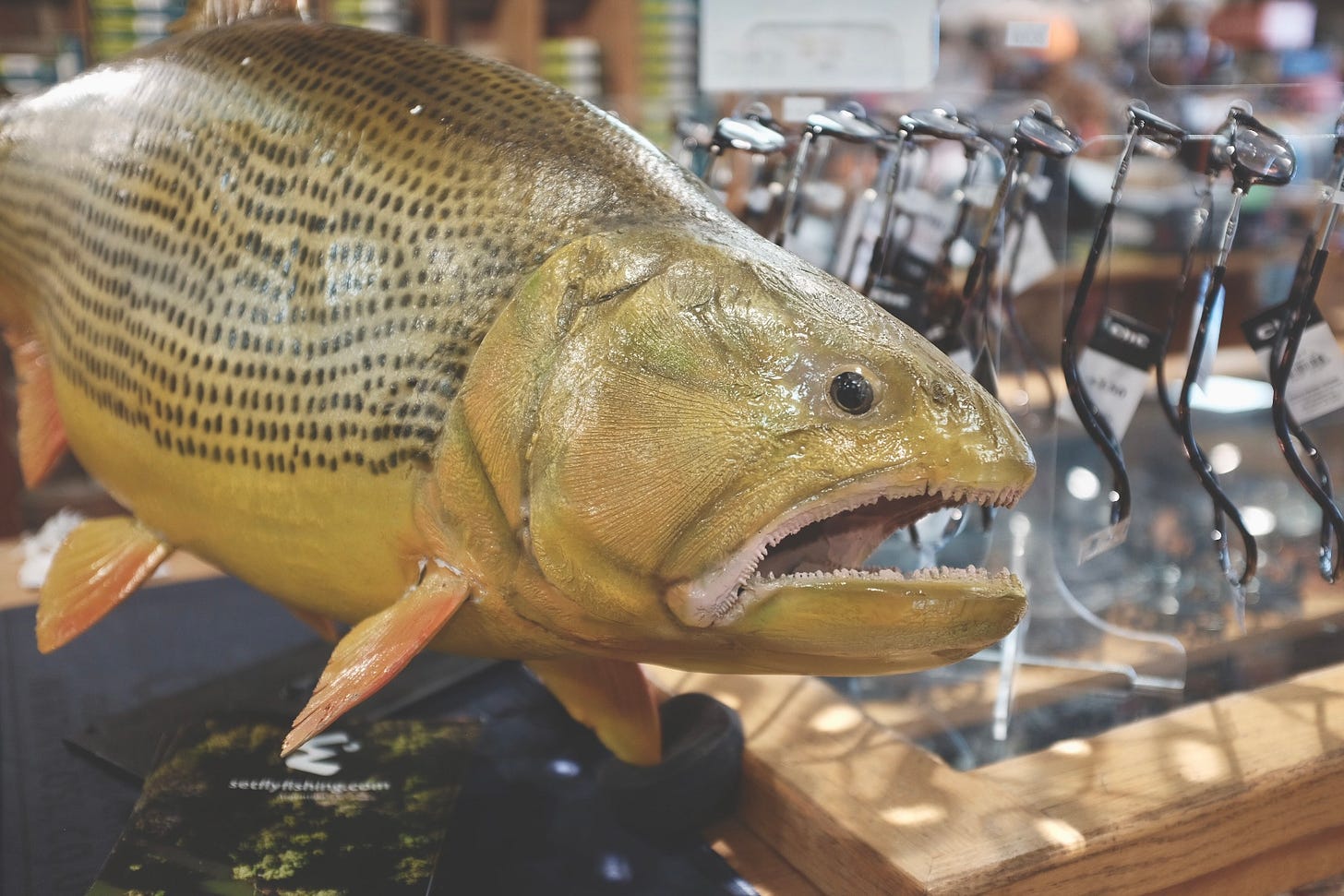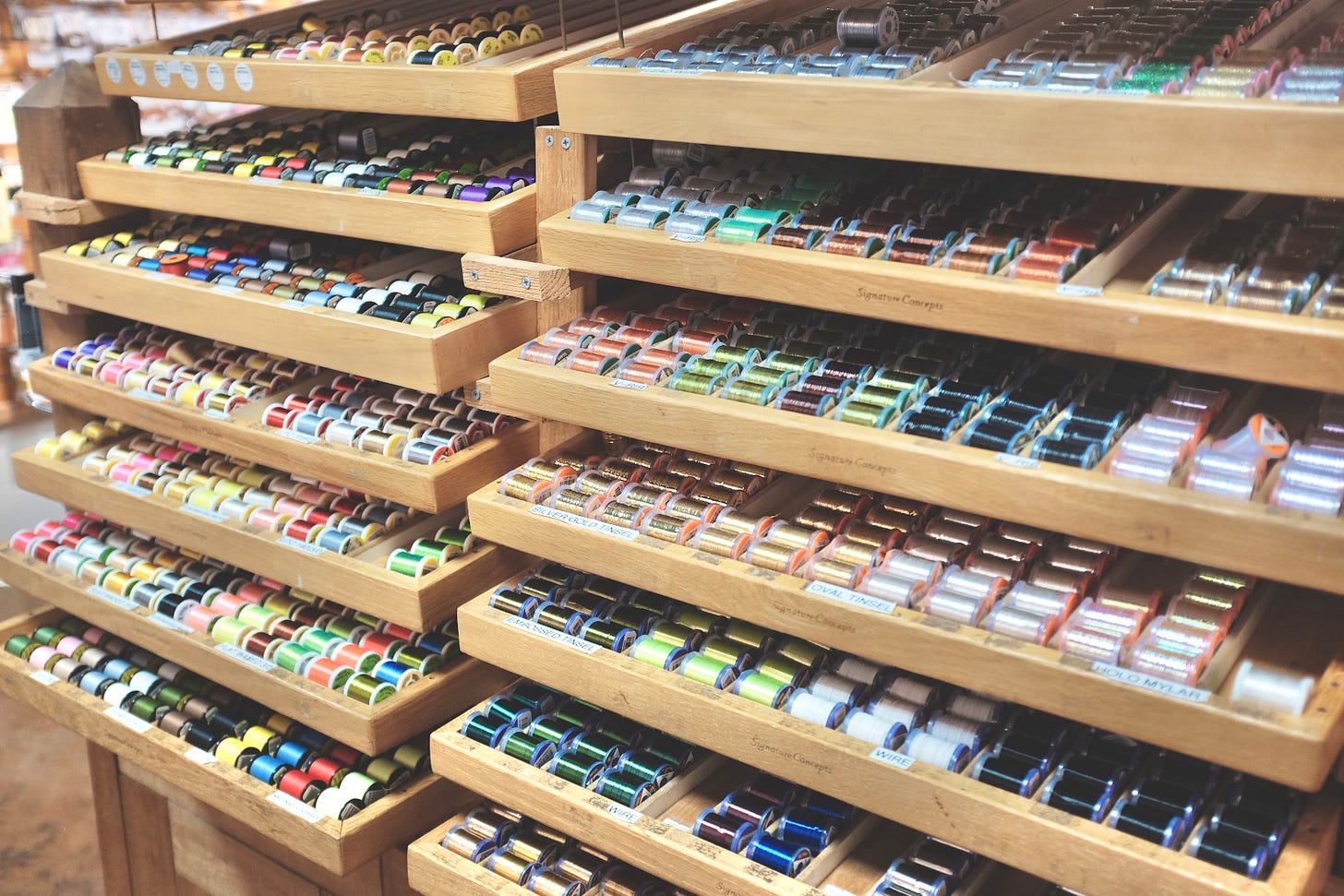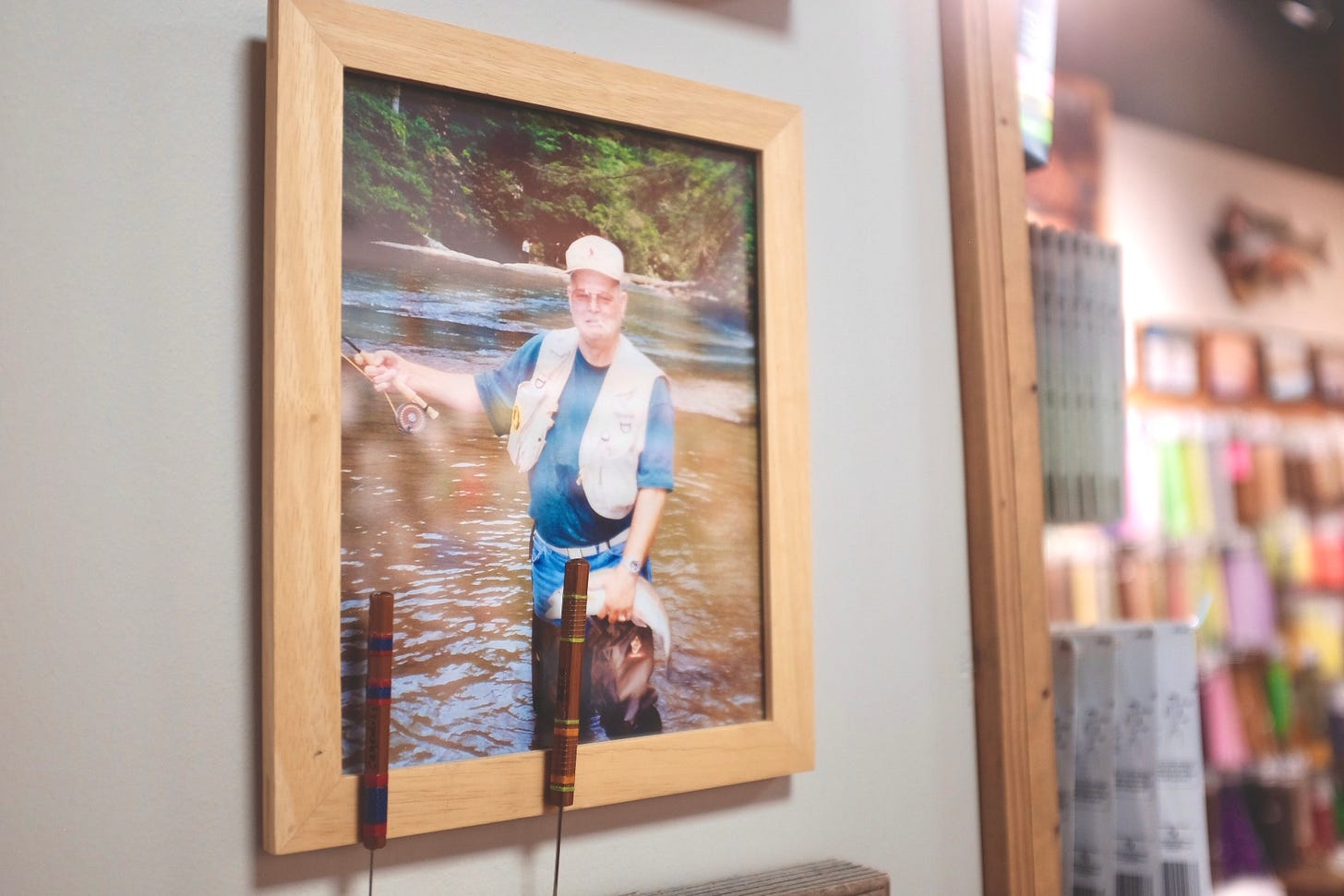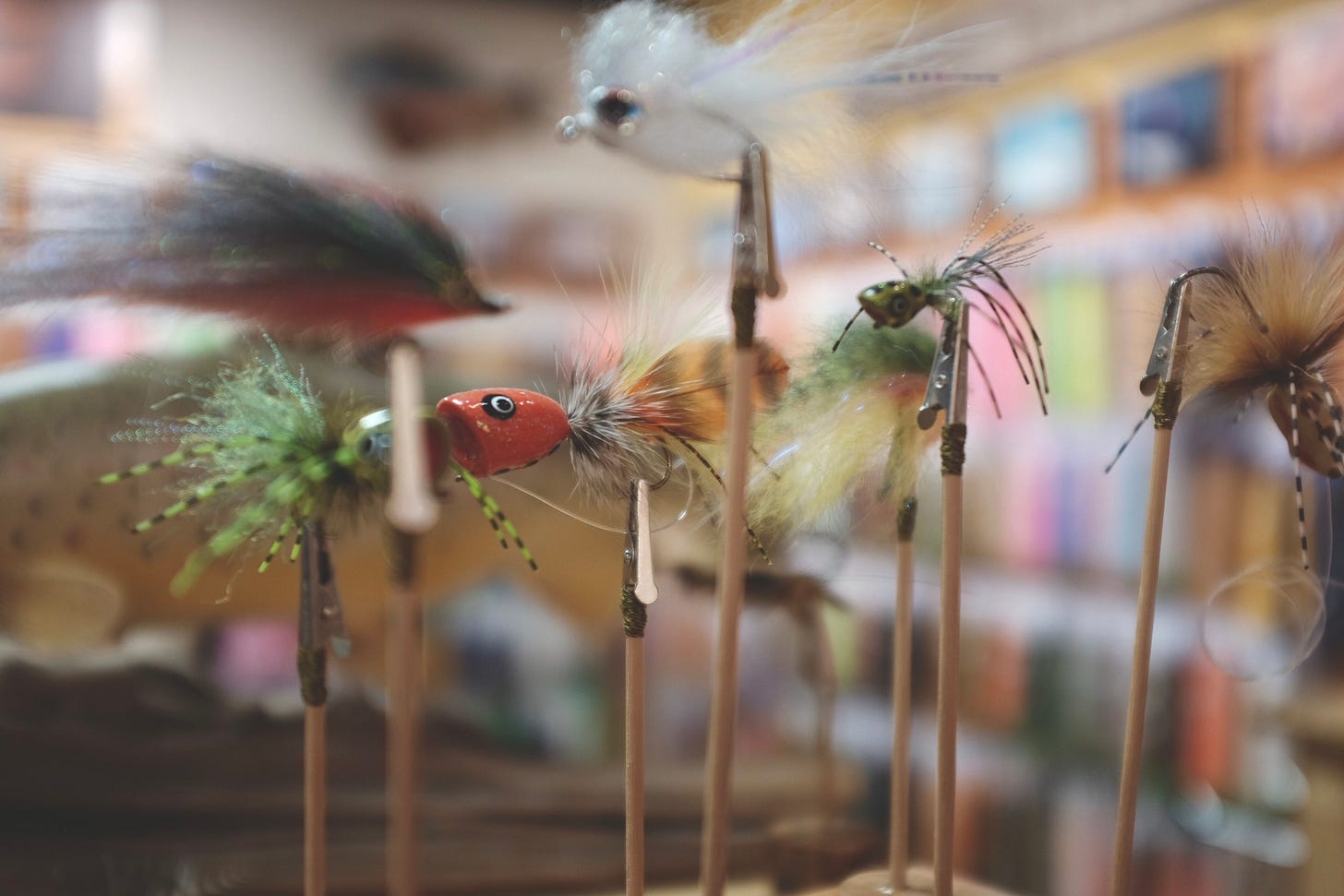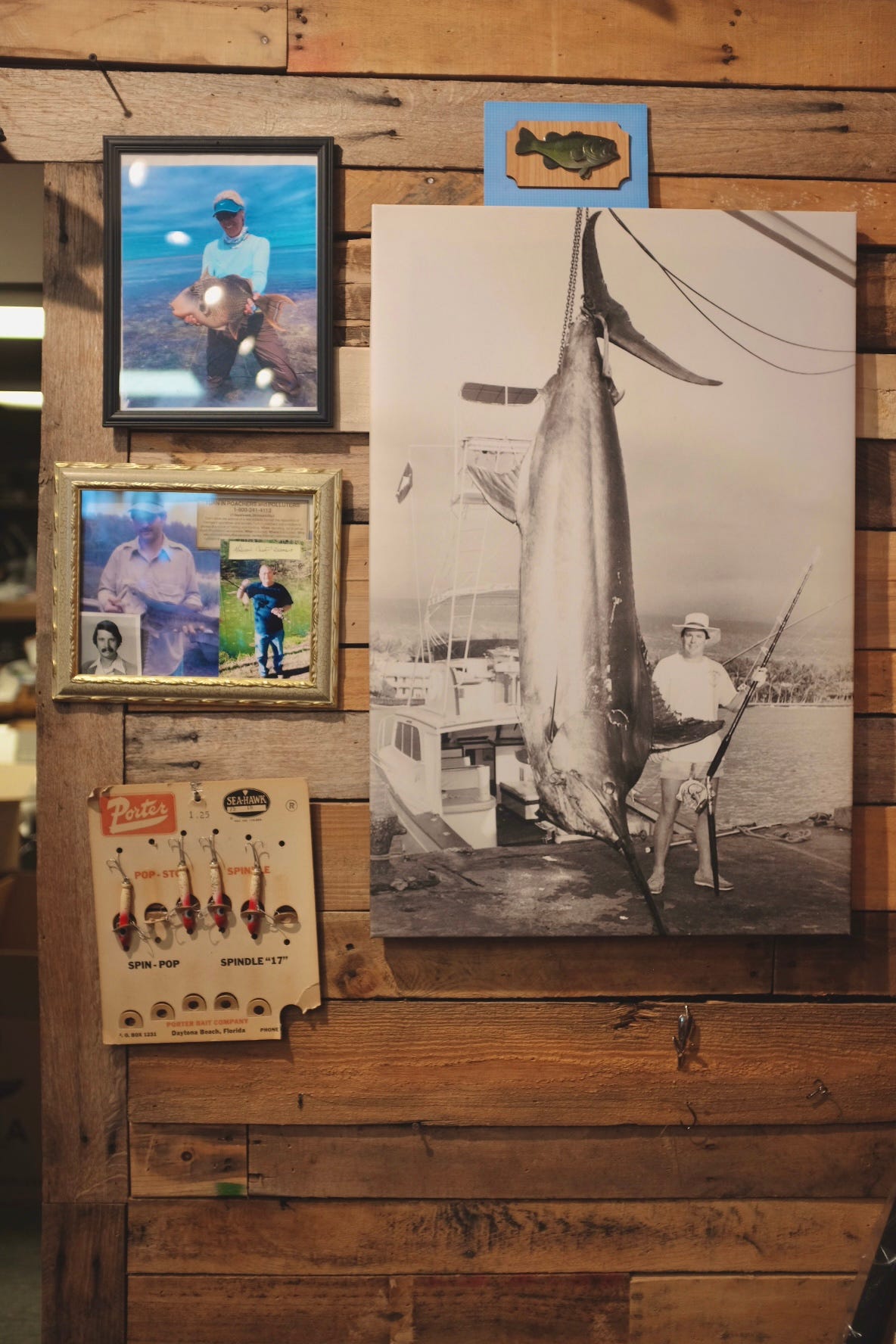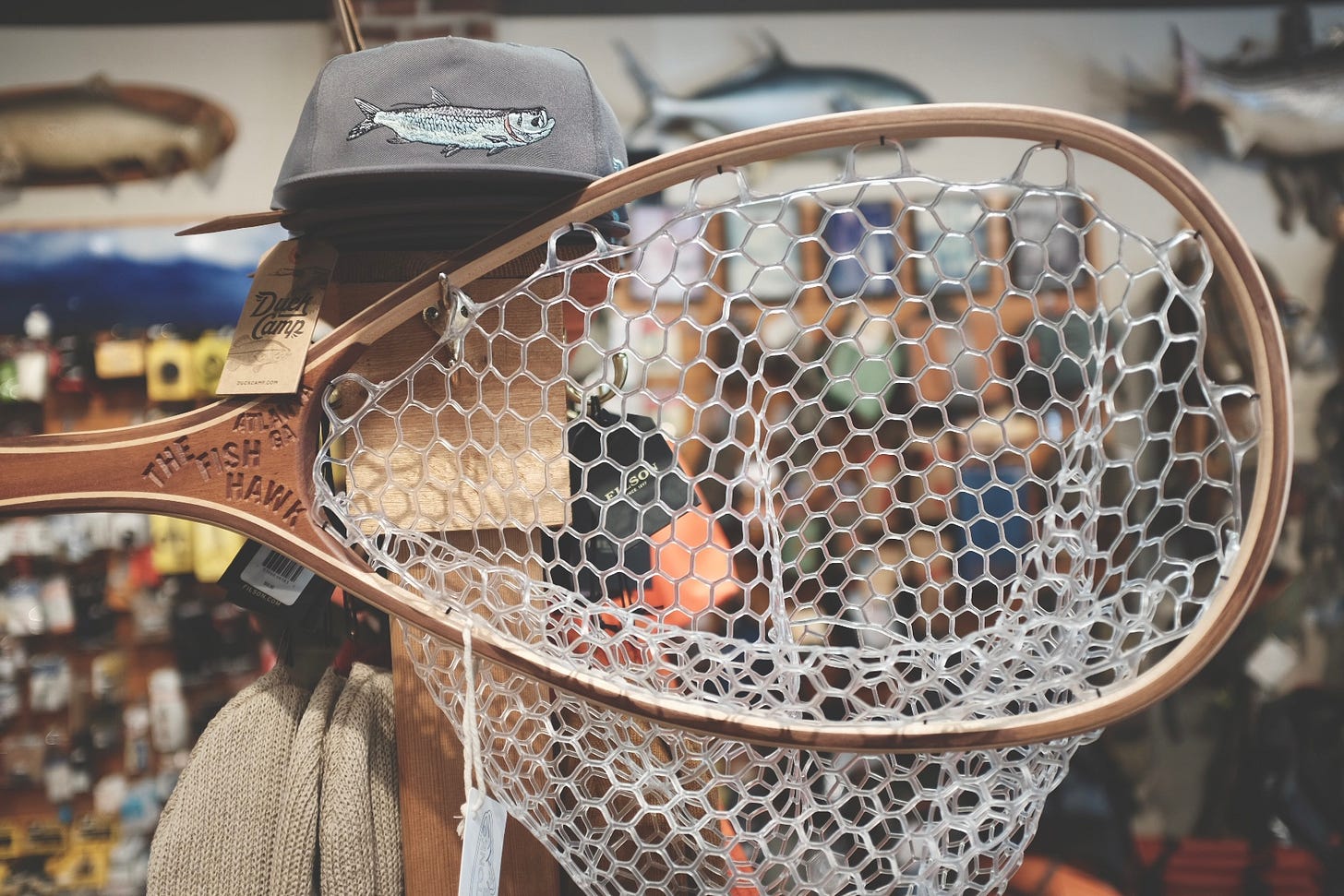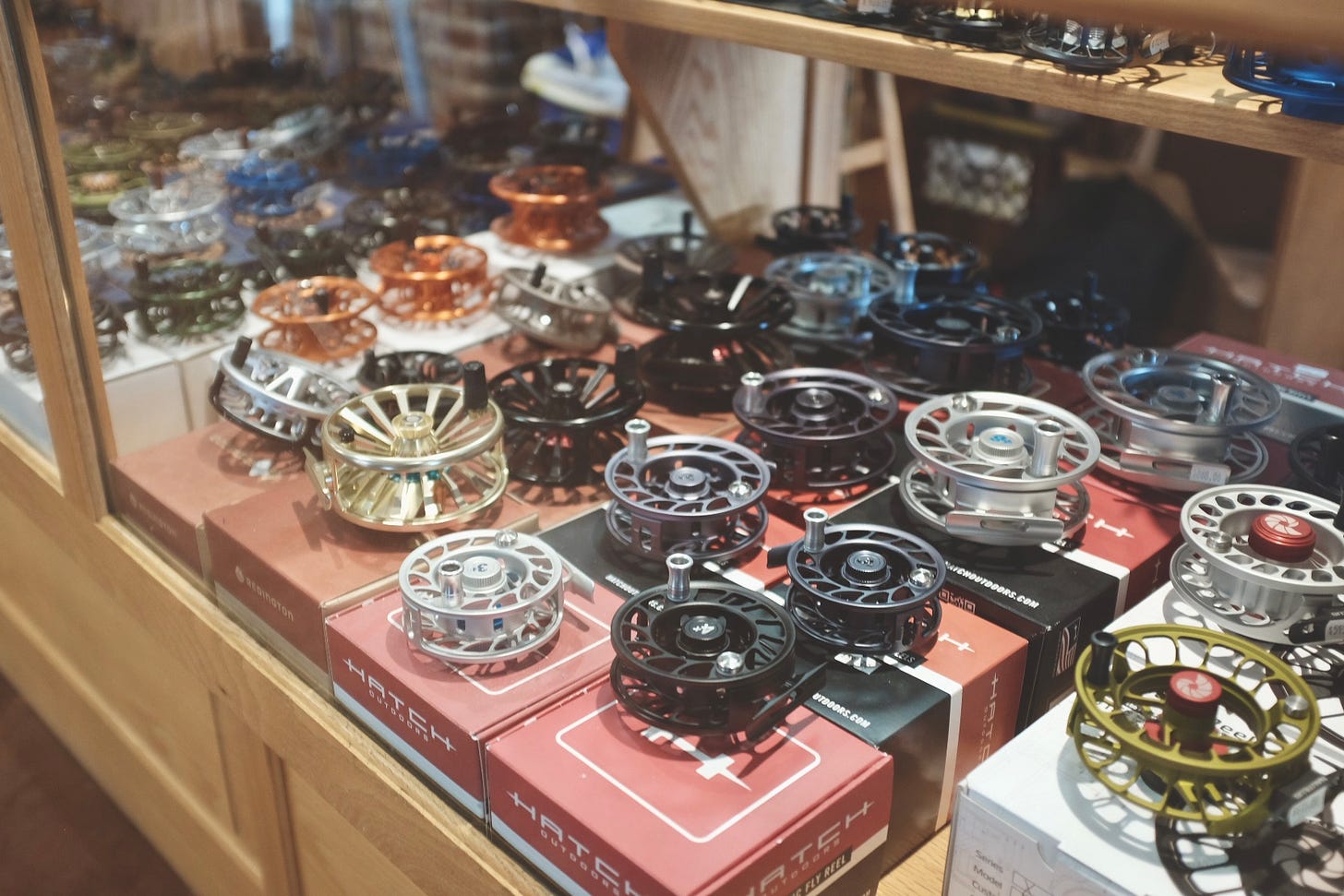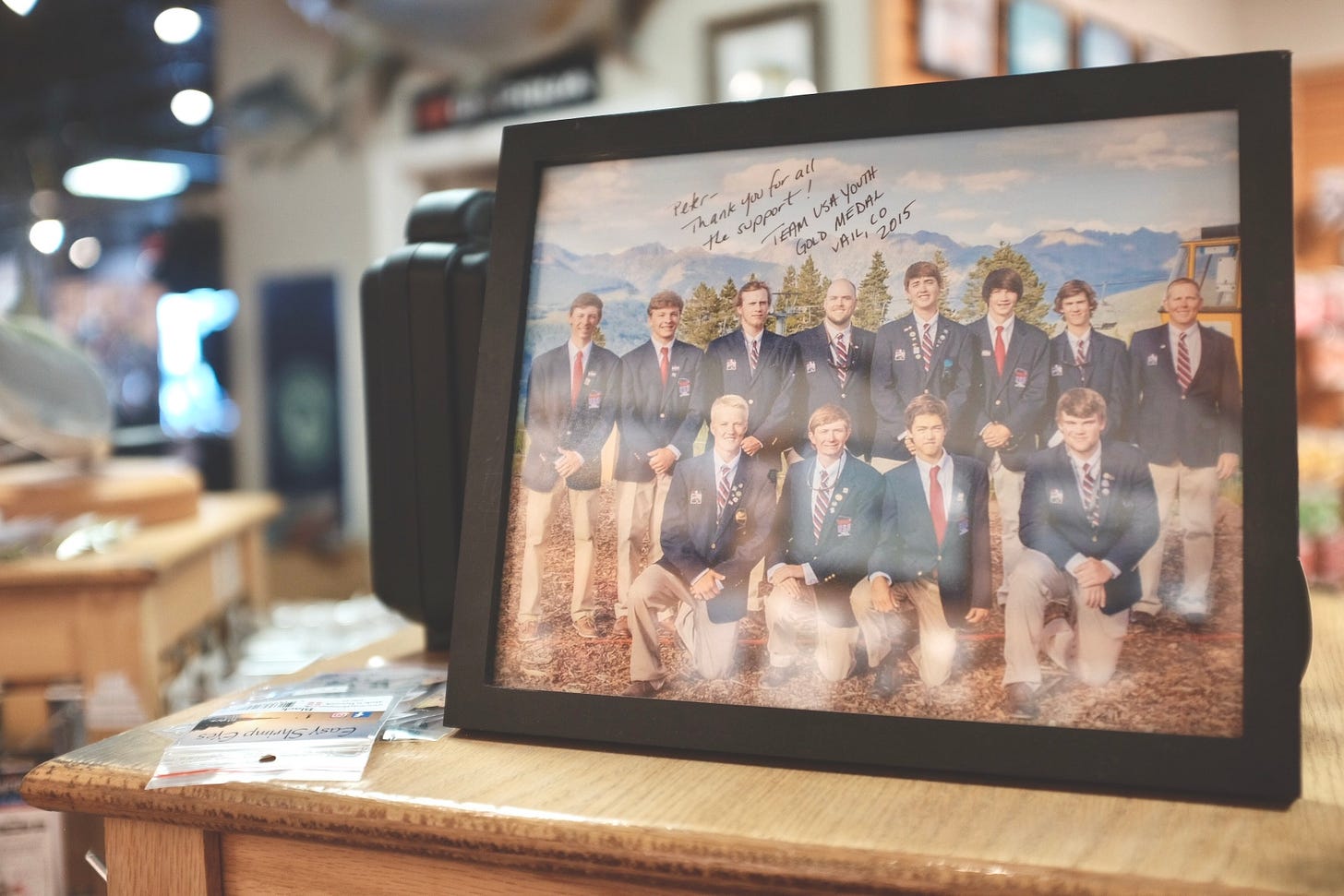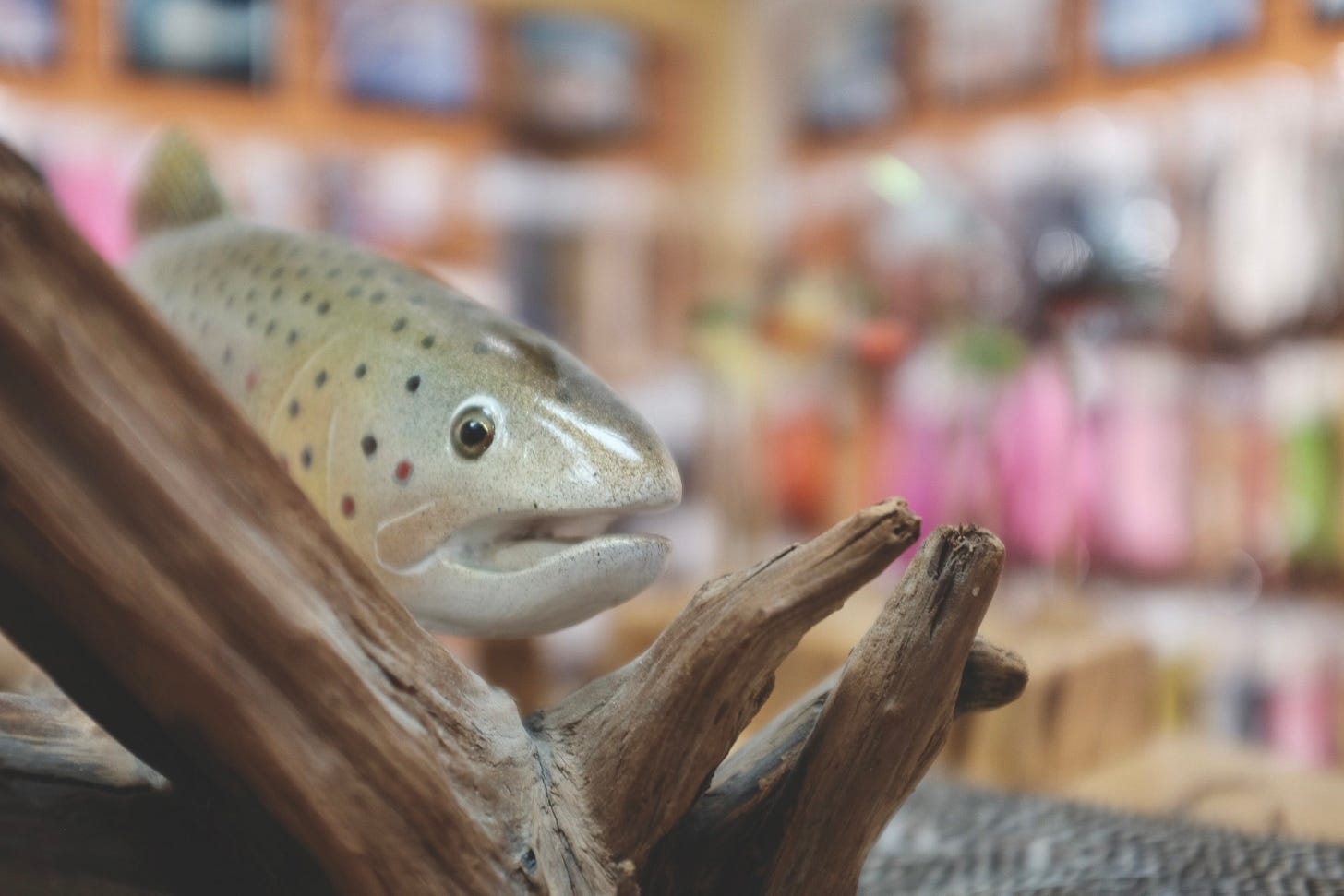“It was THIS BIG!” the old man claimed as he spread his arms wide. “Are you sure you’re not embellishing a little bit?” I reply. “Not at all! I fought him for over an hour, the monster. I couldn’t get a photo, though. My phone was dead after being out on the lake since before sunrise.”
We’ve all heard them. Tales of the anglers. Some are true, and some… are not so true. I still remember my first catch. I was young, maybe 4 years old. I had never held a rod before in my life. Our family took a trip up to the creek, otherwise known as “the crick” to the locals. I probably spent a few hours casting and reeling back in on my Snoopy-themed rod when, all of a sudden, I felt a tug. I began to reel in. My father rushed over to help coach me and lent me some of his strength. It tugged, and I tugged back. I probably fought it for over an hour (more likely 5 minutes, but a four-year-old’s mind doesn’t understand the passage of time). After wrestling the behemoth, out it sprang! A rainbow trout! Its bow glistening in the sunlight. “What a catch!” my dad exclaimed. I held her up high, victorious. We took our picture, then released her back to the wild.
I’ve had very few angling opportunities in my life. Rarely have I been able to share in the experience of the angels. I certainly wouldn’t be the first person you should ask for advice about fishing. However, there’s a shop with over 50+ years of expertise located off Miami Circle in Atlanta that could prepare you for every catch, every place, and every chance. The Fish Hawk is the premier Fly Fishing shop of the Southeast. As anglers around the world connect through Hartsfield-Jackson airport on their way to their destinations, The Fish Hawk prepares them for their expedition. I spoke with owner Gabe Wittosch to find out what makes his shop so special.
The Place: The Fish Hawk
1. What’s the Story?
2. Fly Fishing: The Cult
3. 50+ Years of Angling Experience
4. Lessons and Guides
What’s the story behind Fish Hawk?
The Fish Hawk was started in 1974 by Gary Merriman. He had worked at some other outdoor shops in town and wanted to start his own.
When it comes to his expertise, he started out with bonefish down in the Keys, but as the bonefish got more scarce, he switched over to tarpon, and now he’s known as a world-renowned tarpon fisherman. He’s also well known for catching the marlin that we have on the wall here, which was the largest ever caught by one person on Rod & Reel and was the world record at one point.
He's just a world-renowned saltwater angler, especially on the fly. That's how he's built up the reputation of the shop. He's been all over the world and has traveled with a large number of customers over the years.
The Fish Hawk has developed a reputation for being the one-stop shop for wherever you're going fishing. If we haven't been there, we almost certainly have a customer who has, and we could check with them to get you prepared for your trip. So, Fish Hawk has curated a properly deep understanding of fishing around the world.
How has fly fishing created such an occult following?
I think there are two ends of the spectrum. First, you have the people who find it as an escape from day-to-day life. When you're working nine to five in the city, you can then go up to the mountains on the weekend, where it’s beautiful and cool in the summer. You’re catching these fish that are eating dry flies, and it's really serene and relaxing for them. We see a lot of people who are looking for a break, along with something to relax to on that side of the spectrum. We also see a number of veterans who take it up because it's such a healing activity for them. With it being very serene, it helps take their mind off of everything else going on in life.
Then you also have the other end of the spectrum, which is usually more geared towards saltwater, where it’s a fast-paced, high-emotion, low margin for error, big fish, and cool places kind of style. Most people start off with trout, but a lot of times, they graduate on to traveling and going to other places. For these people, it’s really their passion, and they kind of let it lead them around the world.
What makes Fish Hawk unique as a specialty business?
There are not many fly shops that have been around even close to as long as we have. There's a lot of bigger shops around the country who have recently celebrated something like their 20th, 25th, or 30th year anniversaries, but we just had our 50th. We're older than a lot of the vendors and brands that are out there these days as well.
With that, some of our staff, such as Rob Smith, have been here for decades. Rob Rooks worked here in the 90s and 2000s, took a break, and then came back in the last decade or so. Really, there's been a lot of the same core people for that entire 50 years. Gary retired in 2023, and Bobby, his brother, who had been here for 40 of those years, retired last June. So all of that knowledge from their time and experience has built up our shop over these last few decades.
We're in Atlanta, which is home to one of the largest international airports in the world. So, on any given week, we've got all kinds of people coming through here. Sometimes, two groups going to the Bahamas, a couple of guys going down to Mexico, or even four guys hopping on a plane to Dubai to then go to the Seychelles. There's always something going on all year. I don't think there's many shops that are as well-rounded as us and carry as much knowledge about such a vast array of destinations and species to target. We have an extremely unique customer base who are exceptionally loyal. So I'd say that that is the biggest thing about what makes us unique, is how long we’ve been here with so many of the same customers and employees. You won't find this much knowledge in many other places.
What do you offer outside of the shop?
The main thing we offer is our hosted travel. That is where we take our customers to various tourist destinations. That could be the Caribbean, Yucatan Peninsula, and a lot of South American trips. We'll be expanding that program even more soon.
I've been going down to the same place in Mexico, where I think it may be my fifth or sixth time, in August of this year. So whenever we have people go to Mexico, I can be sure to tell them what's new down there.
We also offer casting lessons through Rob Smith. We have plans for some other opportunities soon, too, such as events down the road, but that’s what we have right now.
The Person: Gabe Wittosch
1. Who is Gabe?
2. How it all started
3. Lessons for Life
4. Tales of the Panhandle
5. Catch of Choice
6. Cardinal Sins
Who is Gabe?
I'm originally from Long Island, New York, but moved down here when I just turned six years old. I was already torn up about fishing, but one of the things I was most excited about was when my dad told me that we were moving by a river that had trout in it. At the time, I had fly-fished a little bit. I’d had a kit for a while that I'd mess around with, but coming down here, I was excited to fish for trout.
I started fly fishing pretty much right off the bat, catching fish in the pond behind the house, going out on the river, and just continued with it, and that was always what I wanted to be doing. As I got older, I started competing and was eventually competing for the US Youth Team. I competed in the 2013 and 2014 World Championships, which were held in Ireland and Poland. We won both of those years, and I won individually in Poland in 2013.
After that, I took a little bit of a break because that was so much fishing and training for so long to be at that level. What really got me fired back up was that I started doing more and more saltwater fly fishing.
I bought a boat in my junior year of college, and I traveled with the boat, going down to Florida and fishing the lakes around here in Georgia. I was competing every once in a while, but I primarily started to focus more on big-game fly fishing in saltwater. I had been coming to Fish Hawk, I guess over 15 years ago at this point, trying all the flies. So I've been coming in here since before I could see over the counter.
My business partner, Kelly Calvo, I knew him from when we started fishing together on a really difficult piece of public water up in the mountains that's known for having massive fish. We fished a lot together there and started doing some traveling down to Florida together. Kelly's boat is actually the first boat I bought when he got a bigger boat for him and his family. So we've always fished a lot together, and he approached me in February of 2020 about buying the shop.
Basically, Kelly met with Gary about the shop, but Kelly is a dad and has a full-time job. They knew someone needed to come in and run it, which is where I came in. I was an obvious fit since I knew both Kelly and Gary really well, had been in the industry for a long time, and had a background in finance. We finalized the purchase on December 7th, 2021, which was our first day owning the shop.
How did you get into Fly Fishing?
I'd say that my first real introduction to it was that I had an aunt and uncle that lived in Maine, and the sport was really big up there. I'm pretty sure they got me my first beginner fly rod outfit. I'd mess around with it a little bit, but it wasn't until we moved down to Georgia and had a pond in the backyard that I could completely mess around with it and learn.
It kind of went from going out there where I'd try and catch one and get frustrated, and just go back to throwing a spinning rod. I'd go out again, and I'd catch a couple, and then I'd go to spin a rod. I’m pretty much self-taught on a lot of things. When I started competing, I was obviously around a lot of people who were better than me and learned a lot from their experience very quickly, but just moving down here was really what solidified fly fishing for me.
What’s the most important lesson you’ve learned from the sport?
Definitely keeping my composure. This draws back to what we talked about, where the trout side is more relaxed and the saltwater side is very intense. I had the intensity on the freshwater trout side because of the competitions. Once you get up to that highest level, everyone can win, but it's more of a mental game.
That’s been huge for me, not just in fly fishing but in life. Staying even-keeled, steady with emotion, but even more so on the fly fishing side. Going onto saltwater is incredibly mental for a lot of people. They’ll get up there and they can make the cast, but they're freaking out about the fish in front of them and panicking. They have to sit down and drink a beer after they blow a shot on a fish.
Composure has paid dividends in all parts of my life, but especially as you get going for these more challenging and fast-paced species, it’s been that composure and that kind of even-keeled, relaxed nature from competition that has been really helpful for all sorts of fly fishing.
Best fishing story?
The night after this happened, is when I texted Kelly to buy his boat.
I'd started going down to the beach with a couple of friends that I competed with. It was always fun to go down and catch some fish, but this one trip, we were fishing in the panhandle of Florida, and everyone had gone back inside. There was a long kayak trip across this channel.
They went back inside the bay to get some food, but I stayed out there fishing. I ended up catching a record class snook out of the blue, which towed me around on a kayak for 45 minutes. I got a stranger to take my picture and email it to me.
It was so stressful waiting for the stranger to email me the pictures he had taken so I could prove the fish story to my friends, but catching that fish really got me fired up again about saltwater. I went home that night, and I texted Kelly that I was going to buy his boat from him, and it kind of kicked off this whole saltwater adventure for me.
What’s your favorite fish to catch?
That's tough. I've really grown to love Dorado fishing in South America. They're just such an aggressive, beautiful fish, and you catch them in cool places.
I really like chasing permit, too, but I'd say there are very few things I like better than waiting for a big bonefish on some nice, clear, Bahamas-style flats. One of my favorite things is wading. It doesn't have to be bonefish, but just wading for flats species where you're creeping up on them and sight-fishing in the water is probably my favorite.
What’s a cardinal sin for you when it comes to fishing?
There's a couple of things. The one that stands out the most in the era of social media is that people need to be more careful about what they put out there because it can ruin places that have been very good for a long time. Not necessarily secret, but it's different when you and your buddies are talking about it versus spreading and sharing it to the world. I think there's a little bit too much skipping steps and finding places, and learning things that are detrimental to the sport.
The other one is just courtesy on the water. That's another thing that people who have learned from others. Someone who sees a cool fish or a spot on social media often just rolls in there with no regard for the people who fish there every day or have been fishing there for a long time. Now, just because you've been fishing somewhere for 20 years, you have no more right to the water than anyone else, but if someone's already there, then there's etiquette that needs to be followed. You don't want to hop right in above them and ruin the hole that they're about to fish next. You don't want to wade through somewhere they're about to fish. You certainly don't want to be right up on them. Etiquette on the water is always an important one that you see. It all just kind of goes hand in hand with being respectful.
Recommendations:
1. Where to Start
2. Tips & Tricks
3. Fishing Holes of Atlanta
How can someone take up Fly Fishing?
The easiest thing to do would be to come stop by and talk to us. We can explain the whole process of what gear you're going to need, such as what you need at first and what you don’t need yet. Taking some casting lessons with Rob Smith here is really important for getting off on the right foot as well. There's a lot of great casting instructors out there, but more and more, we see the wrong things taught, or they're taught by someone who isn't that creative of a caster themselves. It's hard to learn from someone who can't really show you what you're doing wrong and help you mature as a caster. You don't need to be exceptional at casting to enjoy fly fishing, but getting the right foundation will really speed up the learning curve.
There's kind of a misconception out there, but fly fishing isn't a sport where you need to drop a thousand dollars to get into it. You can get a kit for four, three, or two hundred dollars sometimes. For example, if you're not starting in the winter, then you don't need a pair of waders, but instead just something good to walk around the river in. Then, if you really like it, start investing in some higher-quality gear.
But yeah, just stop by, talk to us, book a casting lesson, and then after you have everything, it's great to go out with a guide. Even if you don't have the gear yet, they'll usually have some gear for you to use. That way, you can really get some on-the-water experience.
We always tell people who are starting out to tell the guide, “I want to learn.” Ask questions like, “When we stop here, why did we pick this spot?” or “Why are we throwing the flies this deep in the water?" That's the best way to go about it.
Tips for new anglers?
Work on your casting first. You don't need to be exceptional, but getting the basics down will really set you up for success as you go down the road, and don't overthink it too much. We get people who get a little too nitpicky about flies and leaders, but when you're starting out, you're just trying to get some bites. We usually give people a dozen or so flies, and they're all gonna work. We tell people, “If you don't feel like one's working, then just try another one.” Much of it is getting the technique down, and then the fish will come. Those are some of the best tips we have, just because they really help decrease that learning curve.
Local fishing spots?
The easiest one is the Chattahoochee River, which is separated into two parts here in Atlanta. You have the section from Buford Dam coming out of Lake Lanier down to Morgan Falls Dam, which takes you all the way from the foothills up in Buford way down to the perimeter of the city. That is year-round trout fishing. We have great wild brown trout fishing there. It's well-stocked with rainbows as well. There are a couple of big access points, so it's easy to get on. Then, the lower stretch is no longer year-round trout water, but from November through May, they stock it heavily because it's cold enough for the fish. We're really lucky to have such good trout fishing just right here by this huge metro city.
We also have all the mountain streams, where there's a lot of year-round trout fishing up in the mountains. But if you can't make it up to the mountains for a weekend, you can slide over to a park that's got a creek in it around Atlanta. They usually have some kind of bluegill, sunfish, or bass in there that you can catch.
Good luck out there, and remember, it’s not you; it’s the fly that you’re using.
